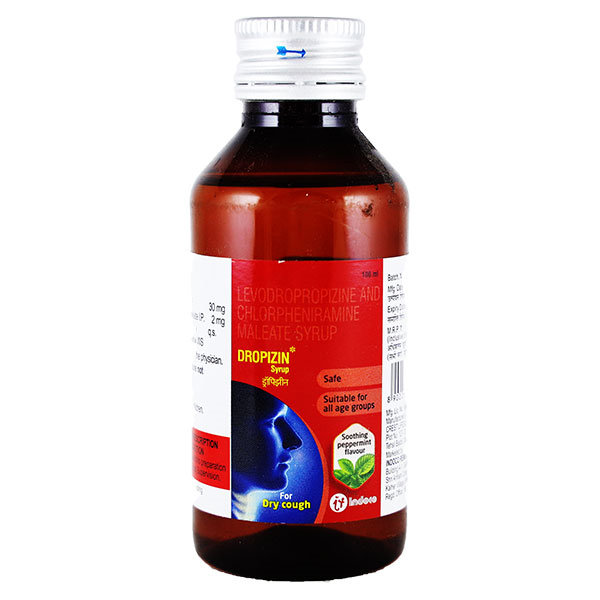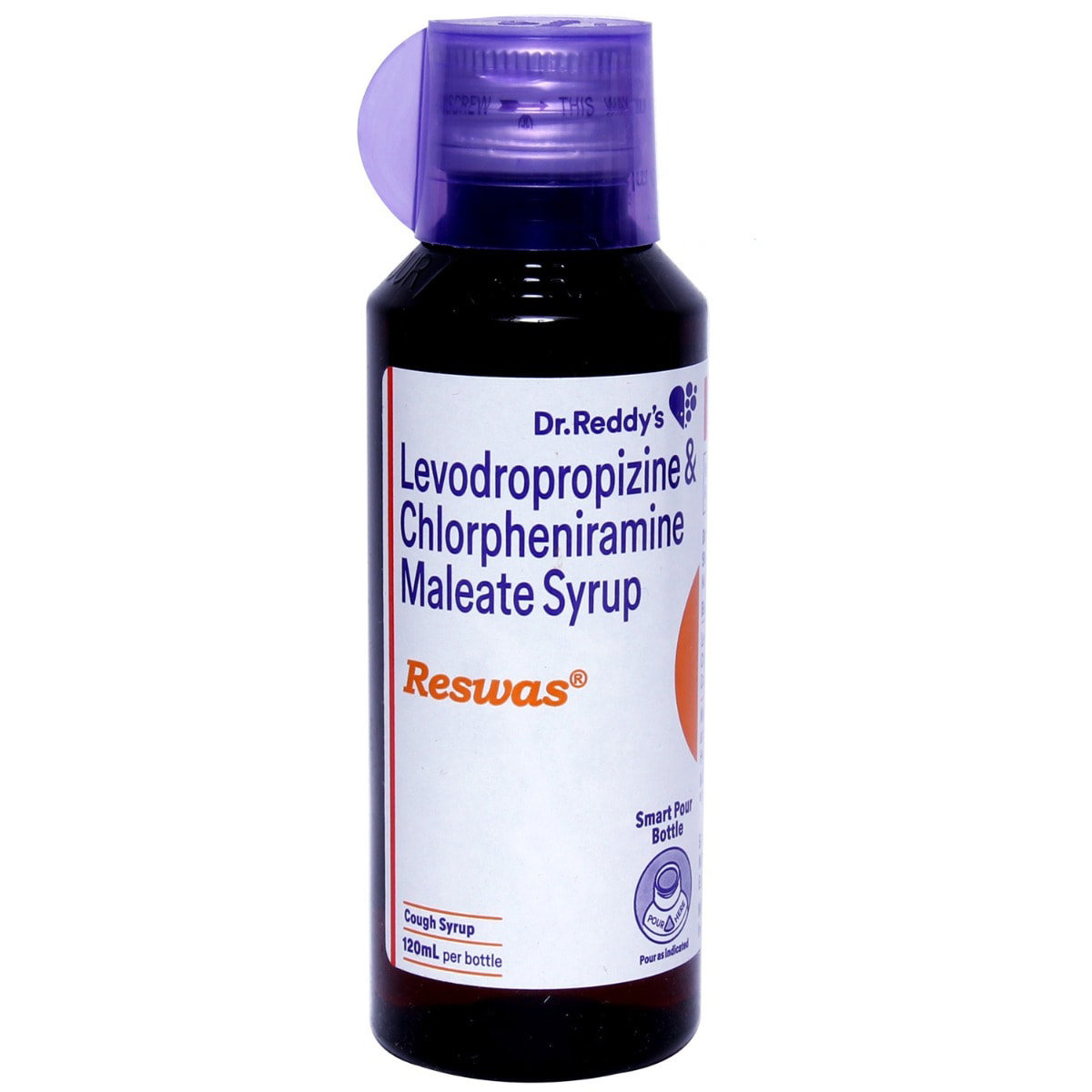- Home
- Costus LD Syrup
Costus LD Syrup Substitute
Costus LD Syrup Substitute
Medicine Composition:
CHLORPHENIRAMINE MALEATE-2MG + LEVODROPROPIZINE-30MGAll Substitutes & Brand Comparisons
RX
Out of StockTusbest Sugar Free Mint Cough Syrup 100 ml
Biochemix Health Care Pvt Ltd
₹95
(₹0.86/ 1ml)
9% CHEAPERRX
Out of StockNeotuss DX Syrup
₹97
(₹0.87/ 1ml)
8% CHEAPERRX
Comtus-LC Syrup 60 ml
Comed Chemicals Ltd
₹61.5
(₹0.92/ 1ml)
3% CHEAPERRX
Dropizin Soothing Peppermint Syrup 100 ml
Indoco Remedies Ltd
₹108
(₹0.97/ 1ml)
2% COSTLIERRX
Out of StockPulmogrip LC Syrup
₹110
(₹0.99/ 1ml)
4% COSTLIERRX
Reswas Syrup 120 ml
Dr Reddy's Laboratories Ltd
₹148.5
(₹1.11/ 1ml)
16% COSTLIERRX
Out of StockLightuss Syrup 100 ml
Delight Medica Pvt Ltd
₹125
(₹1.13/ 1ml)
18% COSTLIER

When Should You Consider Switching from Costus LD Syrup?
Patients may explore substitutes in the following scenarios:
- High monthly cost of Costus LD Syrup
- Non-availability in local pharmacies
- Generic recommendation by a doctor
- Side effects or better tolerability with alternatives
What to Know Before Switching
Before you switch from Costus LD Syrup to another medicine, here are some important points to keep in mind:
Same salt, different brands:
Most substitutes contain the same active ingredient - CHLORPHENIRAMINE MALEATE-2MG + LEVODROPROPIZINE-30MG, but the fillers, coating, or manufacturing quality may vary slightly.
Consult your doctor first:
Even if the salt is the same, your doctor can confirm if the substitute is right for your condition, dosage, and health history.
Watch out for allergies or reactions:
Some people may react differently to certain brands due to inactive ingredients. If you notice any side effects, inform your doctor immediately.
Price ≠ effectiveness:
A lower-priced substitute doesn't mean it's less effective. Many generic medicines work just as well as branded ones.
Check the dosage form and strength:
Always match the substitute’s strength (e.g., 5mg, 10mg) and form (tablet, capsule, syrup) with what your doctor prescribed.
Uses
Costus LD Syrup is used to treat Dry cough. The detailed uses of Costus LD Syrup are as follows:
- Cough Relief: Costus LD Syrup helps relieve dry and productive coughs by soothing the throat and reducing cough frequency and intensity.
- Anti-allergic Action: Costus LD Syrup helps relieve allergy symptoms like sneezing, runny nose, and throat irritation due to its antihistamine properties.
Medicinal Benefits
Costus LD Syrup is a combination of two drugs: Levodropropizine and Chlorpheniramine maleate. Levodropropizine belongs to the class of cough suppressants that work by blocking the transmission of nerve signals from the cough centre in the brain to the muscles that produce cough, thereby decreasing the urge to cough. Chlorpheniramine maleate belongs to the class of antihistamines (anti-allergic drugs) that works by blocking the action of histamine, a substance responsible for causing allergic reactions. It helps to provide relief from symptoms of allergy such as sneezing, running nose, watery eyes, itching, swelling, and congestion or stiffness. Together, Costus LD Syrup provides relief from cough.
FAQs
The substitutes of Costus LD Syrup contain the same active salt(s) - CHLORPHENIRAMINE MALEATE-2MG + LEVODROPROPIZINE-30MG. However, they may differ in price, manufacturing quality, and inactive ingredients. Speak to your doctor to find a suitable option.
Switching to a generic substitute medicine in the place of Costus LD Syrup is often possible if it has the same salt, strength, and dosage form. But always check with your doctor before making any changes to your medication.
Generics versions of Costus LD Syrup are typically more affordable because they don’t include the original brand's research, development, and marketing costs. They contain the same active ingredient and are approved for safety and effectiveness.
Most people don’t notice any difference. However, some may react to different fillers or coatings. If you notice any unusual symptoms after switching, consult your doctor.
Make sure the new medicine has the same active salt, strength, dosage form. Always confirm the change with your doctor or pharmacist.
Substitutes of Costus LD Syrup meet the same safety and efficacy standards as Costus LD Syrup, but small differences in absorption or formulation can exist. A doctor can help you choose the right one for your needs.
Yes. Substitutes of Costus LD Syrup may vary in color, size, or shape due to differences in manufacturing and branding, but this does not affect how they work.
Yes, it’s generally safe to switch between multiple substitutes of Costus LD Syrup if they have the same salt and strength. However, always inform your doctor so they can monitor how your body responds.
Yes, many people safely use substitutes of Costus LD Syrup for long-term treatment. Just ensure it’s done under medical supervision.
If your symptoms stay under control or lab results remain stable, the substitute for Costus LD Syrup is likely working well. Regular follow-ups with your doctor are important.
Absolutely. Even with the same salt, small differences can affect how your body responds when switching from Costus LD Syrup to its substitute. Always consult your doctor before switching.
Costus LD Syrup belongs to a class of medication called cough and cold preparations used to treat dry cough.
Costus LD Syrup contains Levodropropizine and Chlorpheniramine maleate. Levodropropizine works by decreasing the activity of the cough centre in the brain. Thus, decreases the urge to cough. Chlorpheniramine maleate works by blocking the action of histamine, a substance responsible for causing allergic reactions. It helps to provide relief from symptoms of allergy such as sneezing, running nose, watery eyes, itching, swelling, and congestion or stiffness.
No, you are not recommended to consume alcohol with Costus LD Syrup as it may increase drowsiness. However, please consult a doctor before consuming alcohol with Costus LD Syrup.
Yes, Costus LD Syrup may cause dry mouth as a temporary side effect in some people. It is not necessary for everyone taking Costus LD Syrup to experience this side effect. However, to avoid such side effects, drink plenty of water, regularly rinse your mouth, practice good oral hygiene. However, if the condition persists or worsens, please consult a doctor.
Costus LD Syrup may be used to provide relief from allergic symptoms such as sneezing, runny nose, throat irritation or watery eyes. Costus LD Syrup contains Chlorpheniramine maleate, an anti-allergic drug that works by blocking the action of histamine, a substance responsible for causing allergic reactions.
You are recommended to avoid taking Costus LD Syrup if you have asthma, glaucoma, enlarged prostate, urinary problems, blockage in the stomach or intestines. However, if you have any of these conditions, please inform your doctor before taking Costus LD Syrup.
Costus LD Syrup is not recommended for children below 2 years of age. However, Costus LD Syrup should be used with caution in children above 2 years if prescribed by a doctor as misuse of Costus LD Syrup in children may lead to serious adverse effects.
You are recommended to take Costus LD Syrup for as long as your doctor has prescribed it. However, if the symptoms persist or worsen with rash, fever or persistent headache after 1 week of using Costus LD Syrup, please consult your doctor.
No, you are not recommended to stop taking Costus LD Syrup without consulting your doctor as it may worsen cough or cause recurring symptoms. Therefore, take Costus LD Syrup for as long as your doctor has prescribed it, and if you experience any difficulty while taking Costus LD Syrup, please consult your doctor.
Yes, Costus LD Syrup may cause sleepiness or drowsiness as a common side effect. If you experience sleepiness or drowsiness, avoid driving and operating heavy machinery unless you feel fully alert.
Serious side effects with Costus LD Syrup are rare and uncommon. However, contact the doctor immediately if you notice any allergic reactions, skin rash or peeling, mouth ulcers, breathing difficulties, frequent fevers or infections, vision disturbances, or fast or irregular heartbeat.
No, taking more than the recommended dose of Costus LD Syrup will not be effective, rather it may cause unpleasant side effects. Therefore, always take Costus LD Syrup in the prescribed doses to prevent adverse effects and to get full benefits.
No, you should not breastfeed while taking Costus LD Syrup without consulting the doctor, as it may pass into breastmilk and cause harm to the baby. Therefore, consult the doctor before taking Costus LD Syrup if you are a breastfeeding woman.
You should not take Costus LD Syrup if you are allergic to any of its ingredients and avoid taking over-the-counter medications without a doctor’s advice.
Costus LD Syrup should be stored in a cool and dry place away from sunlight. Keep it out of sight and reach of children.
The side effects of Costus LD Syrup include constipation, dry mouth, drowsiness, vomiting, blurred vision, dizziness or tiredness. Consult the doctor if any of these symptoms persist or worsen.





